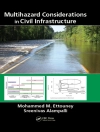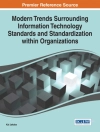- Summarises the latest developments in ecological principles underpinning agroecology which provide the foundation for approaches such as regenerative agriculture
- Reviews how to balance trade-offs in agroecosystems to balance yields with resilience and protection of biodiversity
- Assesses how to optimise practical agroecosystems by involving farmers and using open-source technology and indigenous knowledge
Innehållsförteckning
Part 1 Why agroecology?
- 1.Definition and history of agroecology: Pablo Tittonell, University of Groningen, The Netherlands;
- 2.Green revolution agriculture: the treadmill of industrial agriculture: Matthew Houser, University of Maryland Center for Environmental Science, USA;
- 3.Agriculture and societal expectations for the 21st century: Jennifer Blesh, University of Michigan, USA;
Part 2 Ecological knowledge and its application to agroecosystems
- 4.The biodiversity-ecosystem function conceptual framework: A core hypothesis of agroecology: Rob Brooker, James Hutton Institute, UK;
- 5.The extended phenotype: how do plants shape communities of associated organisms?: Matthew Bakker, University of Manitoba, Canada;
- 6.What is meant by the ecological resilience of agroecosystems?: Meagan Schipanski, Colorado State University, USA;
- 7.Cross-scale effects on arthropod diversity, community composition, and ecosystem services: the intermediate diversity hypothesis: Marcos Ezequiel Nacif, Universidad Nacional de Río Negro, Argentina;
- 8.The stress gradient hypothesis and positive plant-plant interactions: Li Long, Chinese Agricultural University, China;
- 9.Ecosystem science as a basis for agroecological nutrient management: Gabriel Maltais-Landry, University of Florida, USA;
- 10.Rhizosphere ecology: an agroecological frontier: Bryan D. Emmett, USDA-ARS, USA;
Part 3 Synergies and tradeoffs under agroecological management regimes
- 11.Crop diversity impacts yield and yield stability: Tim Bowles, University of California-Berkeley, USA;
- 12.What is the potential for managed biodiversity to reduce inputs while also maintaining yields?: Anna Norberg, Potsdam Institute for Climate Impact Research, Germany;
- 13.The tension between biodiversity restoration and food production: land sparing, land sharing, and rewilding: Ivette Perfecto, University of Michigan, USA;
- 14.What is the potential for expanding the role of plant-microbial symbioses in agroecosystems?: James Bever, University of Kansas, USA;
- 15.Integrated crop-livestock systems: productive potential and ecosystem services: Amélie Gaudin, University of California-Davis, USA;
- 16.Perennial grains: From moonshot to farmers’ fields: Timothy Crews, The Land Institute, USA;
- 17.The role of agroecological management systems in climate change adaptation and mitigation: Fabian Menalled, Montana State University, USA;
- 18.Push-pull polyculture systems: using functional diversity to provide essential ecosystem services: Daniel Mutyambai, International Centre of Insect Physiology and Ecology (icipe), Kenya;
Part 4 Agroecosystems as couple socio-ecological systems
- 19.Agroecology: where ecological science meets the social sphere: Michael Mayerfeld Bell, University of Guelph, USA;
- 20.Analyzing top-down and bottom-up drivers of natural resource management: Laura Pereira, Global Change Research Institute (GCI) – Wits University, South Africa;
- 21.Collective natural resource management: David E. Ervin, Portland State University, USA;
- 22.Participatory action research and co-creation of knowledge: Sieglinde Snapp, International Maize and Wheat Improvement Center (CIMMYT), Mexico;
- 23.Can ecological economics promote agroecological management systems?: Joshua Farley, University of Vermont, USA;
Part 5 Agroecology and pathways to sustainable food systems
- 24.Farmers as innovators and agents of change: Daniel Lopez-Garcia, Spanish National Research Council, Spain;
- 25.Agroecology and food sovereignty: Hannah Wittman, University of British Columbia, Canada;
- 26.Open-source technology and knowledge systems to support agroecological production: Ankita Raturi, Purdue University, USA;
- 27.Indigenous knowledge and agroecological food systems: Nancy Turner, University of Victoria, Canada;
- 28.Breeding crops for ecologically-based agriculture: Julie Dawson, University of Wisconsin, USA;
Om författaren
Dr Long Li is a professor in Agroecology at China Agricultural University currently. He has endeavoured to explore the ecological principle of agricultural intercropping, at the same time, and to focus at using the principle to develop intensively ecological agriculture.
Köp den här e-boken och få 1 till GRATIS!
Språk Engelska ● Formatera EPUB ● Sidor 700 ● ISBN 9781801469005 ● Redaktör Laurie E. Drinkwater ● Utgivare Burleigh Dodds Science Publishing ● Stad Cambridge ● Land GB ● Publicerad 2025 ● Nedladdningsbara 24 månader ● Valuta EUR ● ID 9556714 ● Kopieringsskydd Adobe DRM
Kräver en DRM-kapabel e-läsare












